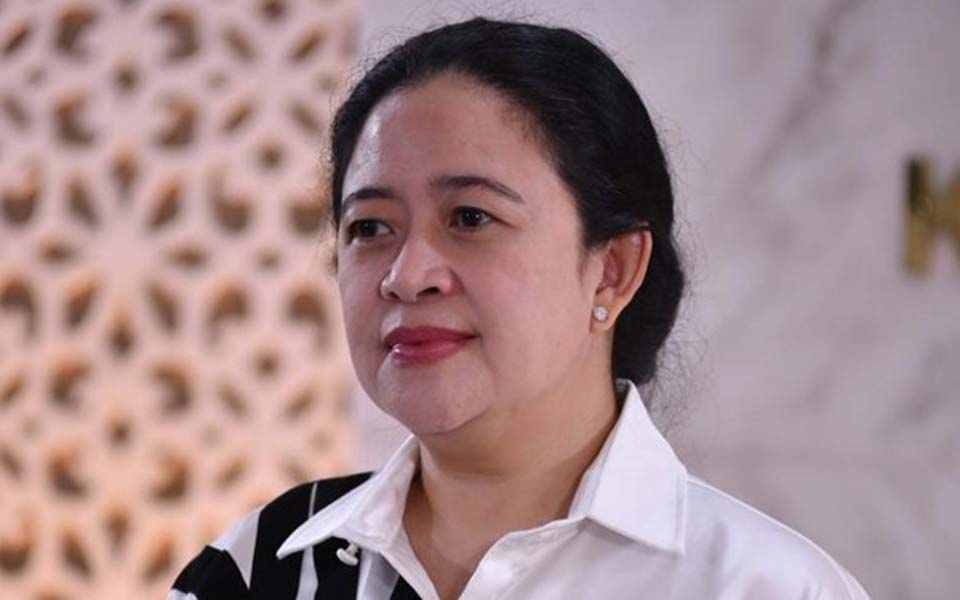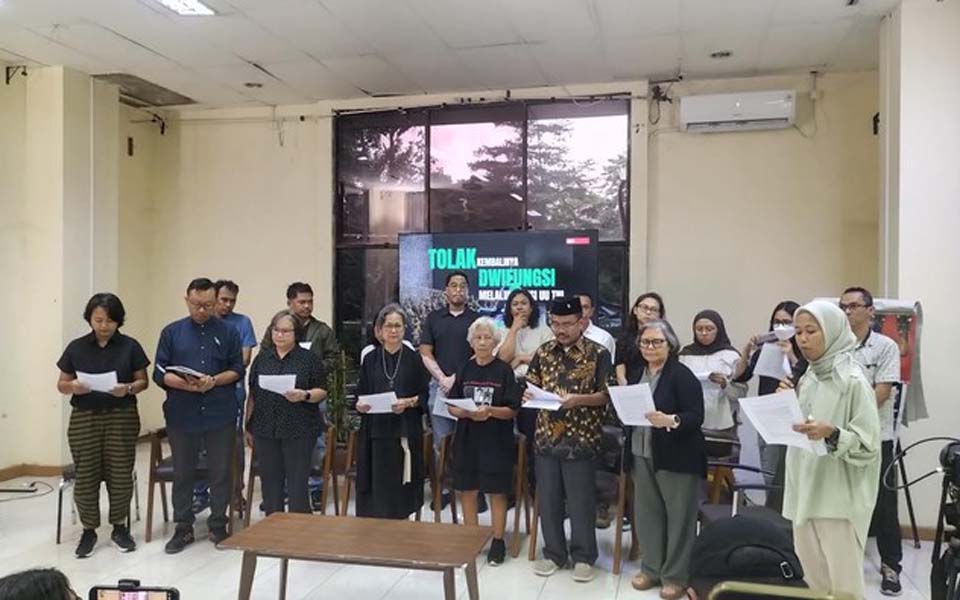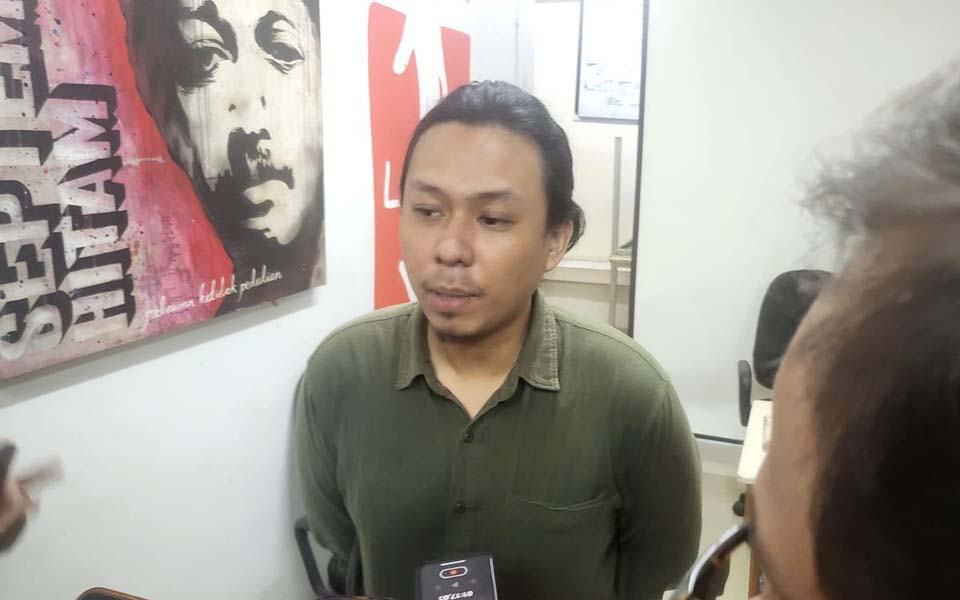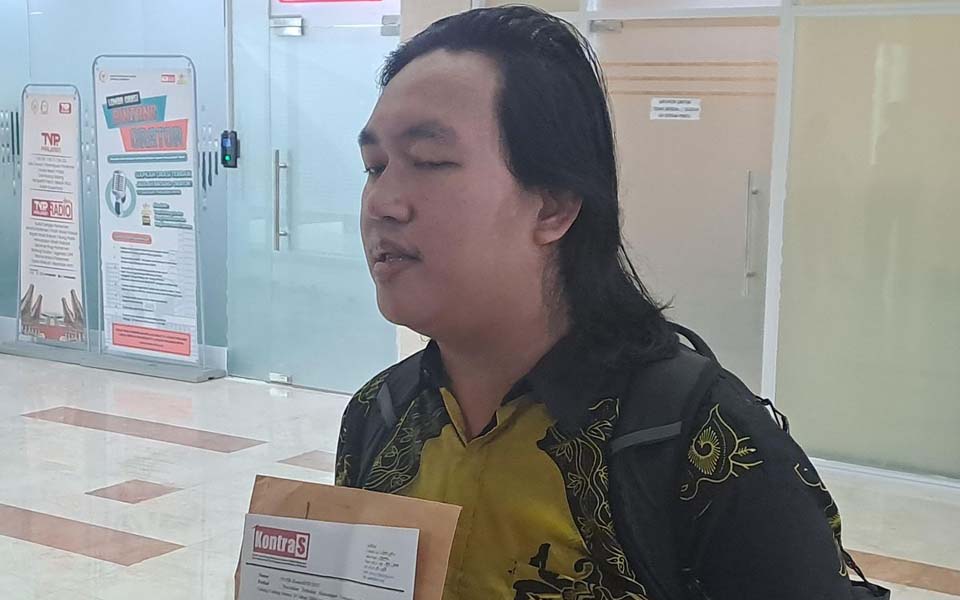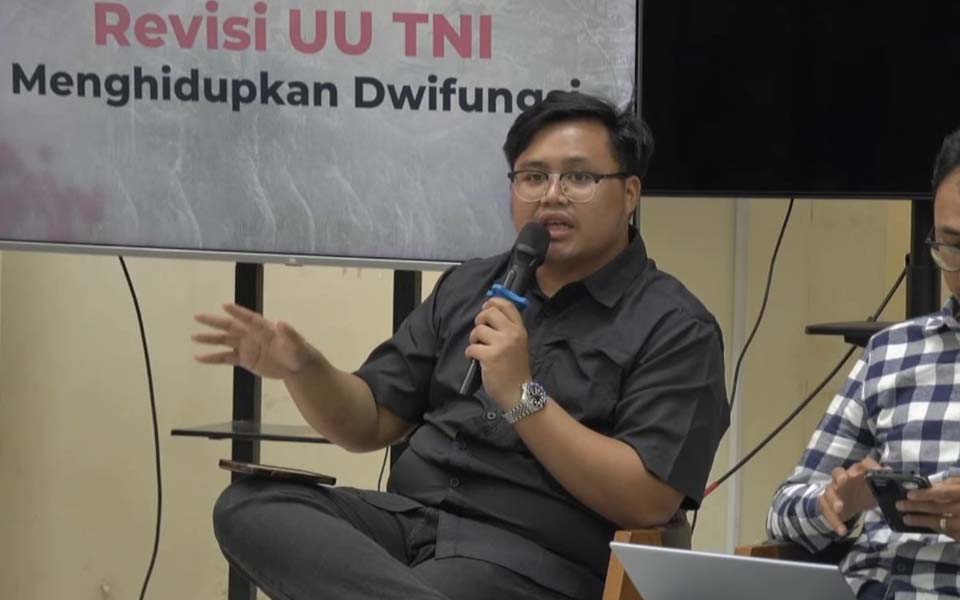Jakarta – On Tuesday May 28 the House of Representatives (DPR) officially approved a draft law on the third amendment to Law Number 3/2002 on the National Police (Polri) as an initiative proposed by the DPR.
In the proposal, there are two discussion points that will be accommodated in the latest revision to the National Police Law. First, related to the addition of several powers such as monitoring and blocking content in cyberspace and wiretapping.
The second main point is related to the retirement age for National Police officers that will be extended to 60 years and can be increased to 65 years if the officer occupies a functional position.
After becoming an initiative proposal from the DPR, the revisions to the law will be discussed by House members together with the government before it is officially passed into law.
Despite this, the draft revisions to the National Police Law have attracted criticism from a number of parties because they are seen giving to much authority of the Bhayangkara Corps – as the police are known – without strengthening oversight of the force.
One of those who have conveyed such criticisms is Commission for Missing Persons and Victims of Violence (Kontras) Coordinator Dimas Bagus Arya. According to Arya, the changes regulated in the bill still do not resolve the police's institutional problems.
In relation to the discourse on extending the pension limit for example, Arya believes that there is no pressing need for this being changed. Increasing the pension age, he said, will only give rise to a new problem related to the internal regeneration process within the National Police.
According to Arya, the thing that is far more urgently needed for the Bhayangkara Corps today is a comprehensive evaluation of the recruitment mechanisms and the regeneration of officers.
"The concern is that it will have an impact on the internal regeneration process within the police. However it will not solve the problem of the accumulating number of high- and middle-ranking officers in Polri" he told CNN Indonesia on Wednesday May 29.
He also criticised the expansion of powers for the National Police Intelligence and Security Agency (Baintelkam) to conduct wiretapping and intelligence gathering. This criticism was conveyed by Kontras because Indonesia still does not have a law that specifically regulates wiretapping activities.
Therefore Arya believes that if the revisions are passed without an overriding regulation on wiretapping, it will be very susceptible to abuse of power.
"Meanwhile the authority related to intelligence gathering has the potential to overlap with similar powers belonging to special agencies [such as the] National Intelligence Agency (BIN)", he explained.
Cyberspace security and supervision
On the other hand, Arya also highlighted the expansion of the National Police's authority to carry out security and supervision in cyberspace through the bill.
The reason is that in the draft proposed by the DPR, the National Police will be able to take action, block, terminate or endeavor to slow access to cyberspace.
Yet, said Arya, the National Police itself set a bad precedent in 2021 when it unilaterally blocked and slowed internet access in Papua.
Therefore he is concerned that if the addition of this authority is not accompanied by efforts to supervise the National Police, it will lead to a lot more arbitrary internet restrictions.
"This authority is very susceptible to being misused, bearing in mind that on the interception of communication and digital interception the regulation is still weak so that it is vulnerable to arbitrariness in its implementation", he said.
"If the expansion to 'foster' and 'supervise' cyberspace is carried out arbitrarily it could violate citizens' privacy rights as guaranteed by Article 28G Paragraph (1) of the 1945 Constitution and Article 17 of the International Covenant on Civil and Political Rights", he added.
Institute for Security and Strategic Studies (ISESS) National Police researcher Bambang Rukminto also agrees with this view, although Rukminto did not deny that an expansion of authority in cyberspace is needed to address widespread electronic crime.
This expansion, he said, could indeed have a positive impact so that the police can crack down on cybercrime, which continue to grow rapidly.
He believes however that long before the police's authority is expanded, the government should first prepare an oversight tool for the National Police, one of which would be by making revisions to the Criminal Procedural Code (KUHAP).
"Before giving greater authority to the National Police related to supervision and action in cyberspace, an oversight tool must be prepared. One of these is revisions to the KUHAP that can anticipate problems in cyberspace", he said.
Furthermore, Rukminto is suspicious that the many additional powers and the extension of police officers' retirement age could actually have the potential to make the National Police a tool of hegemonic power.
"This is dangerous, because state institutions given the authority to carry out law enforcement can be used as a political tool for power and can be used as a tool to suppress the rights of society", he explained.
Therefore Rukminto is urging the National Police chief (Kapolri) to also accommodate the strengthening of the control systems and external oversight such as the National Police Commission (Kompolnas).
Rukminto is of the view this can be easily strengthened through the addition of more community representatives in the ethical enforcement and discipline of National Police officers.
"In addition, giving input to the president regarding the selection of the Kapolri, as well as providing input on the National Police's policy direction", he said.
Rukminto emphasised that improvements to police regulations should be carried out by prioritising the public's needs and to keep up with the times rather than the internal needs of the institution.
"The revisions to the National Police Law must prioritise the public's needs, not just for the benefit of the National Police as an institution", he said. (tfq/pmg)
[Translated by James Balowski. The original title of the article was "Polemik RUU Polri, Tambah Kewenangan Minim Pengawasan".]






